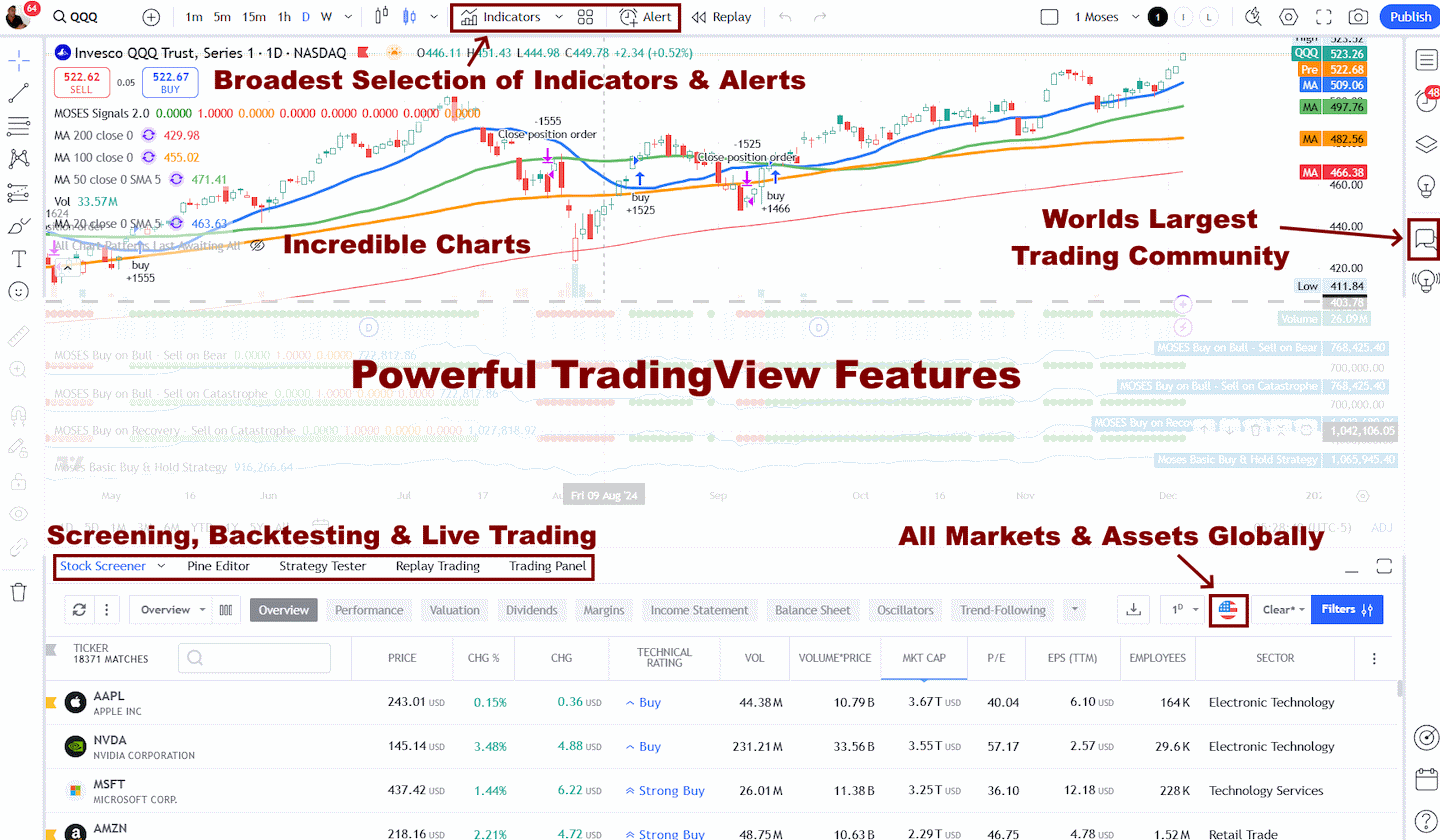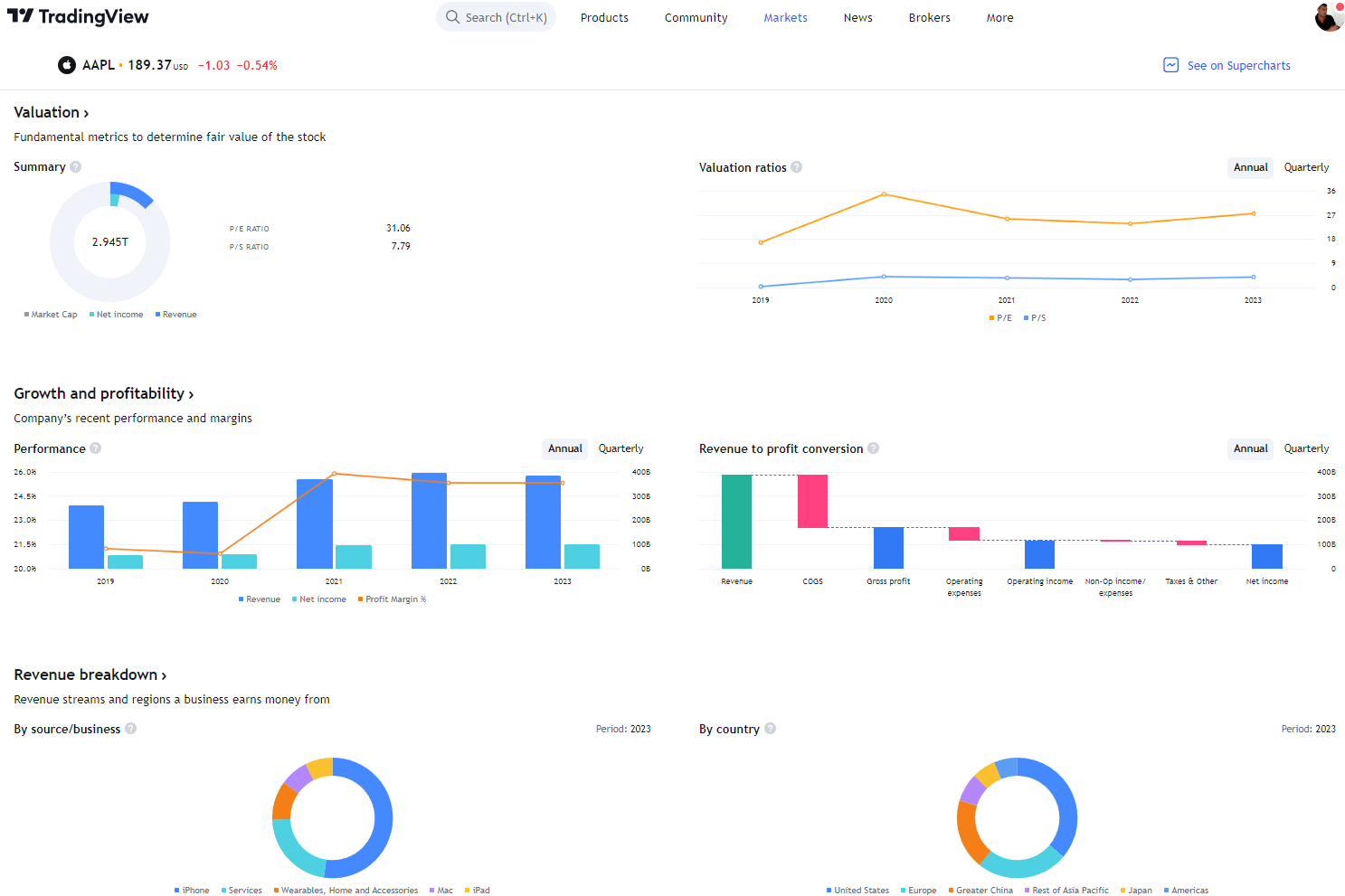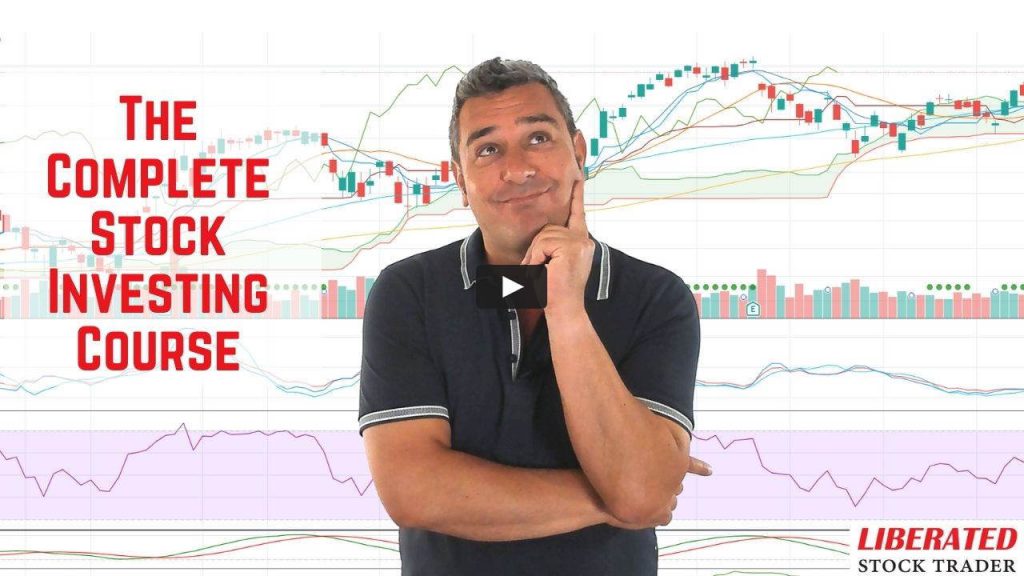FOMO, or Fear of Missing Out, is a phenomenon in which investors are spurred by the fear that they might miss out on potential gains from stock investments.
This feeling can lead to poor investment choices, as people may make decisions without adequate research or consideration of risk.
This article helps you overcome the fear of missing out by helping you understand how FOMO is generated and provides ten tips to beat it.

What is FOMO in Investing?
FOMO, or the fear of missing out, stems from our insecurities and the belief that others lead more satisfying lives, or worse yet, that we’re missing out on crucial life opportunities. FOMO can trigger feelings of unease, dissatisfaction, depression, and stress, taking a toll on our well-being.
FOMO in stock investing is the fear of missing out on potential gains or that other investors are making more money than you. This feeling can cause people to make hasty decisions without considering risk or doing adequate research.
How does FOMO affect investors?
When experiencing FOMO, investors tend to make poor decisions, such as buying and selling, based on emotions instead of facts. This can lead to chasing stocks that are already overvalued, buying with insufficient research or the wrong strategies, or trading too often.
1. Understand what causes FOMO in stocks.
FOMO is an abbreviation for Fear of Missing Out. It is the feeling you have when something good happens to others, and you feel like you are missing out on it. This may be because you lack the knowledge or resources to take advantage of the opportunity.
The Fear of Missing Out, or FOMO in stocks, is one of the most destructive impulses that an investor can experience. Investors experience FOMO when they feel the need to buy or sell a stock because it is popular or unpopular. A typical FOMO case is thinking you must buy the latest hot cryptocurrency or stocks because everybody else is buying it.
FOMO is destructive because it drives people to invest without thinking or conducting research. Avoiding FOMO is hard because basic human emotions and instincts drive it.
2. Know that FOMO in stocks is destructive.
The emotions that drive FOMO are the fear of loss and not being part of the group. Fear of loss occurs when investors see other people making money.
The fear of not being part of the group occurs when you think everybody knows something you do not. We make this fear worse by suspecting others are deceiving us or withholding information.
Fraudsters love FOMO because they can use it to peddle secret knowledge or methods. Con artists use FOMO to market “beat stock market methods” based on the “secret knowledge” they claim wealthy investors possess.
People get FOMO during market rallies.
3. Consider FOMO is used as a marketing tool.
Fear of Missing Out is a universal emotion that affects everybody. ADWEEK estimates that 56% of social media users and 69% of millennials aged 25-40 admit to suffering from FOMO.
FOMO will strike all investors at some point. An investor who claims to be immune to FOMO is a liar.
Investors must learn to control FOMO, which leads to reckless and irrational decision-making. Brokers, fraudsters, and marketers understand the power of FOMO and use it to take investors’ money.
Brokers encourage FOMO because they make money when investors trade. Brokers do not care if the investor makes money because they collect fees whenever a person buys or sells a stock. The more stocks a person buys or sells, the more money the brokerage makes.
Digital technology worsens the situation because engineers design investment apps like Robinhood and the Cash App to encourage FOMO. Critics such as Matt Taibbi allege that Robinhood encourages reckless decision-making and mindless trading.
My thorough testing awarded TradingView a stellar 4.8 stars!
With powerful stock chart analysis, pattern recognition, screening, backtesting, and a 20+ million user community, it’s a game-changer for traders.

Whether you're trading in the US or internationally, TradingView is my top pick for its unmatched features and ease of use.
Explore TradingView – Your Gateway to Smarter Trading!
4. Know that no investor is immune to FOMO.
Investors need to understand FOMO because today’s marketplace thrives on FOMO. No investor is immune to FOMO, but you can become resistant to Fear of Missing Out. The best investors understand that FOMO is a constant threat everybody must manage daily.
The good news is that you can teach yourself how to manage FOMO. Many hacks can help you control FOMO and keep it out of your decision-making.
5. Create a trading plan and stick to it.
The best way to avoid FOMO in stocks is to create an investing strategy, turn it into a plan, and stick to it. The most successful investors, whether fund managers or individual investors, have a trading strategy.
There are many approaches to making money in the stock market, from Value Investing, Income Investing, or Growth Investing to Trading; each strategy requires a different plan and different stock selection criteria.
Once you have a plan you believe in, preferably one back-tested to stand the test of time, you can implement it and build out your stock portfolio. Doing this will give you peace of mind and reduce your fear of missing out.
You want to be a successful stock investor but don’t know where to start.
Learning stock market investing on your own can be overwhelming. There’s so much information out there, and it’s hard to know what’s true and what’s not.
Liberated Stock Trader Pro Investing Course
Our pro investing classes are the perfect way to learn stock investing. You will learn everything you need to know about financial analysis, charts, stock screening, and portfolio building so you can start building wealth today.
★ 16 Hours of Video Lessons + eBook ★
★ Complete Financial Analysis Lessons ★
★ 6 Proven Investing Strategies ★
★ Professional Grade Stock Chart Analysis Classes ★
6. Reduce your news consumption.
The world’s most successful value investor, Warren Buffett, manages FOMO by ignoring the news. Buffett famously ignores financial news when he picks stocks.
“We watch the prices of things we do more than current events,” Buffett said of his Berkshire Hathaway (BERK.B) team in a 2019 CNBC interview. Buffett and his team base their decisions on financial reports and stock prices rather than news.
Buffett understands that “news” promotes FOMO by focusing on the most exciting aspects of investment. Journalists only report on stocks that experience big price changes, for instance.
This practice creates FOMO in stocks by manufacturing a sense of impending doom or sudden wealth. Investors who watch news channels see many stories about hot IPOs, sudden price increases, and other exciting events. Producers focus on those stories because they attract attention.
Buffett knows that news organizations are in the attention-getting business, not the fact-reporting business. Producers, editors, journalists, and media executives know that more attention attracts subscribers and advertisers. News organizations make money by selling advertising and subscriptions.
Buffett understands the news because he was in the newspaper business for 45 years. Buffett owned newspapers because they made money from subscriptions and advertisements.
Buffett limits news consumption because he knows the news offers a shallow, simple, and inaccurate picture of events that encourages FOMO. You can avoid FOMO by limiting your news consumption.
Not watching news channels and ignoring financial news on social media are good ways to avoid FOMO. A constant financial news diet leads to FOMO because brokers can manipulate journalists to promote FOMO and increase stock sales. Journalists go along because FOMO helps them attract attention and make more money.
Try TradingView, Our Recommended Tool for International Traders
Global Community, Charts, Screening, Analysis & Broker Integration

Global Financial Analysis for Free on TradingView
7. Limit social media use.
Social media is one of the most powerful drivers of FOMO. ADWEEK estimates that 69% of Millennials (age 24 to 40) fear missing out if they do not check social media.
Scientists have identified FOMO as a predictor of problematic social media use, an article in the International Journal of Environmental Research and Public Health claims. Social media causes FOMO because it demands constant attention and instant action.
People constantly receive messages promoting the latest hot stock and cannot avoid FOMO. The best way to manage Social Media FOMO is to limit social media use.
You can avoid Social Media FOMO by only using social media to communicate with friends, families, and coworkers. One way to avoid FOMO is to ignore all messages from anybody you do not know. Another is never to read social media messages about stocks.
A final way to limit social media use is to check your messages once a day. Limiting social media use can help you control FOMO.
8. Pause before making important investing decisions.
You will make terrible investments if you make investment decisions fast and without research. FOMO in stocks causes such mistakes by demanding immediate action.
A good way to avoid poor decisions and discourage FOMO is to always wait a week or longer before making an investment decision. Waiting a week can ensure that you will be sure of your decisions.
Giving yourself a week will give you time to research and consider the investment. Waiting can prevent FOMO because the anxiety FOMO causes will vanish.
Once the feelings settle down, you can think rationally and strategically. You can examine all the aspects of the investment and make an informed decision. The longer you wait, the weaker the FOMO will become.
9. Automate investing with index funds.
The best way to keep emotions, such as FOMO, out of investing is to remove yourself from the stock-picking process. You can automate investing and eliminate FOMO in stocks by investing in index or exchange-traded funds (ETFs).
An S&P 500 index fund owns stock in America’s 500 largest publicly-traded companies. Such an index fund eliminates FOMO because the only criteria its managers use for stock ownership is the company’s size.
If you cannot avoid FOMO, one of the best ways to ensure you have money in the future is to invest at least 25% of your funds in an S&P Index Fund. One person who believes in Index Funds is Warren Buffett. CNBC reports that Buffett will instruct his estate to invest 90% of the money he set aside for his widow in S&P Index funds.
10. Ignore market commentary.
Constantly watching the market will lead to FOMO because there will always be impressive or interesting stocks you do not own. No person, even Warren Buffett, can track every investment and spot every good stock.
“We’ll miss a lot in the future; we missed a lot in the past,” Buffett admitted at the 2019 Berkshire Hathaway Shareholders meeting.
Buffett admits he missed many money-making stocks, including Apple (AAPL), Amazon (AMZN), and Alphabet (GOOG) in the past. Yet Buffett has no regrets because he does not watch the market.
Buffett focuses on the stocks he is interested in and ignores everything else. By not watching the market, Buffett avoided FOMO because he did not see all the stocks he had failed to buy. Buffett holds stocks for a long time.
Following Buffett’s example can help you avoid FOMO because you will not spend your time trying to follow many stocks at once. When you watch lots of stocks, you will see and regret missed opportunities. That behavior can lead to FOMO.
An excellent way to avoid FOMO is only to follow the stocks you own and ignore everything else. Not following stocks you do not own eliminates one of FOMO’s principal causes: seeing investments you do not own making money.
The first step in controlling FOMO is to understand it. If you understand FOMO and how it works, you can help avoid it.
FAQ
What is FOMO in stock trading?
FOMO, or Fear Of Missing Out, is the emotional trigger that compels investors to buy a stock when its price is rapidly increasing due to the fear of missing out on potential profits.
How can FOMO affect my investing decisions?
FOMO can lead to impulsive buying decisions, often resulting in purchasing stocks at inflated prices. This can increase the risk of losses if the stock price subsequently falls.
How can I avoid FOMO in stock trading?
To avoid FOMO, develop a disciplined investment strategy, focus on long-term goals, and avoid making decisions based on market hype or short-term trends.
Can FOMO lead to stock market bubbles?
Yes, FOMO can contribute to stock market bubbles, as in 1929, leading to a surge in buying activity, and driving prices up beyond their intrinsic value.
Are there any tools to help deal with FOMO in stock trading?
Yes, the best tool for dealing with FOMO is education, knowledge, and experience. Taking our stock investing course can help you build knowledge and confidence in your investing skills, thus reducing FOMO.
How can I identify if I am experiencing FOMO?
If you find yourself making impulsive investment decisions based on market trends or the fear of missing out on potential profits, you may be experiencing FOMO.
What are the potential consequences of FOMO in stock trading?
Potential consequences include overpaying for stocks, increased risk of losses, and deviating from your investment strategy.
Is FOMO always a bad thing in stock trading?
While FOMO can lead to risky behavior, it's not always negative. It can motivate investors to stay informed about market trends and opportunities. Additionally, traders can adopt a contrary investing strategy to benefit from FOMO in others.
How can I use FOMO to my advantage in stock trading?
By recognizing when others are acting out of FOMO, you can identify potential overpriced stocks to avoid or opportunities for short selling.
Can FOMO impact both individual and institutional investors?
Yes, FOMO can impact all investors, from novices to seasoned professionals and large institutions. Even Warren Buffett experienced FOMO because he did not invest early in Amazon.com.
Can FOMO lead to panic selling?
Yes, the fear of missing out on selling at a high price can lead to panic selling.
How does FOMO relate to market volatility?
FOMO can contribute to market volatility by causing rapid price increases and subsequent falls.
Are certain types of stocks more susceptible to FOMO?
Highly hyped stocks, such as tech stocks or those in emerging industries, are often more susceptible to FOMO. Those who pump penny stocks deliberately use FOMO to entice others to make poor investment choices.
How does FOMO affect stock market valuations?
FOMO can inflate stock market valuations as investors buy into hype and drive up prices. The 2000 DotCom bubble was driven by pure FOMO.
What strategies can help me control FOMO?
Strategies include setting investment goals, creating a disciplined strategy, staying informed, and avoiding herd mentality.
Can FOMO lead to a stock market crash?
In extreme cases, FOMO-driven bubbles can burst, leading to a market crash; this happened in 1929 and 2000.
How does FOMO affect risk management?
FOMO can undermine risk management by encouraging impulsive decisions and increased risk exposure.

